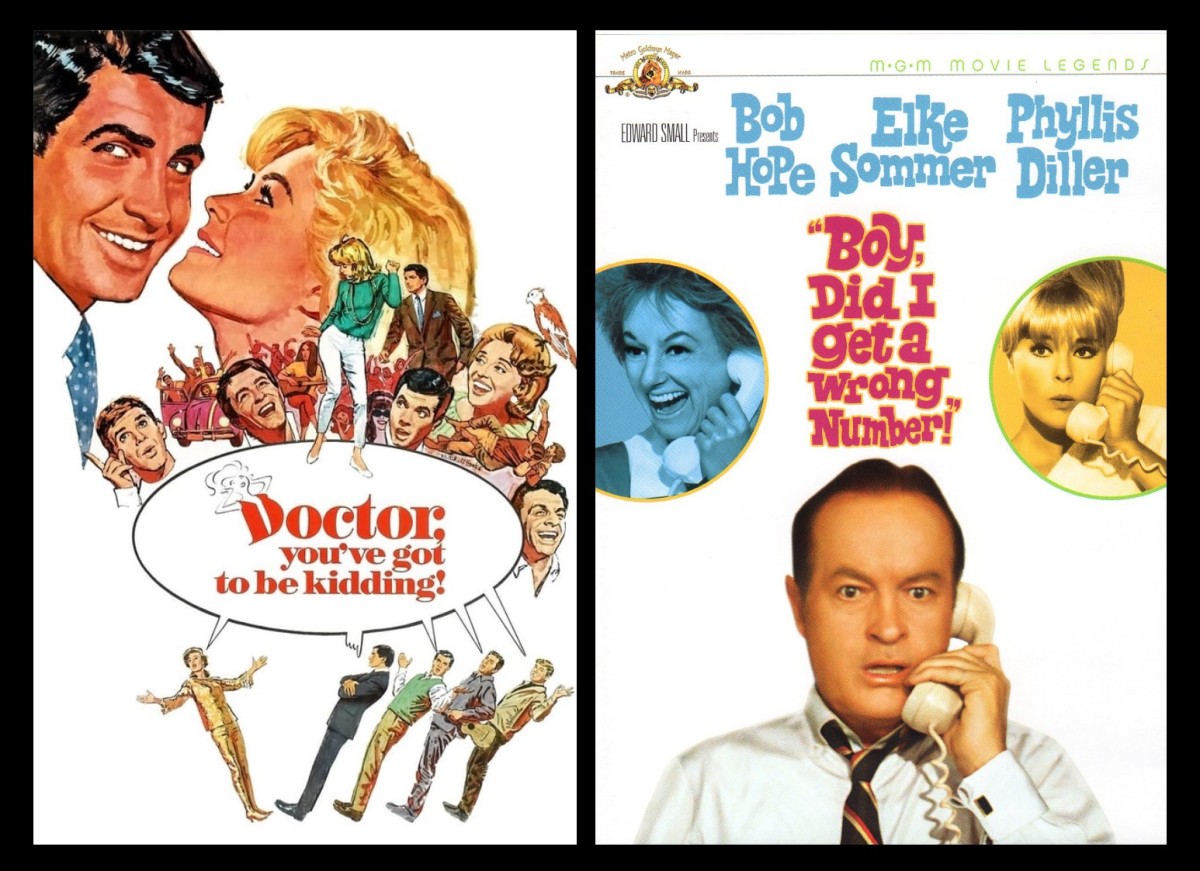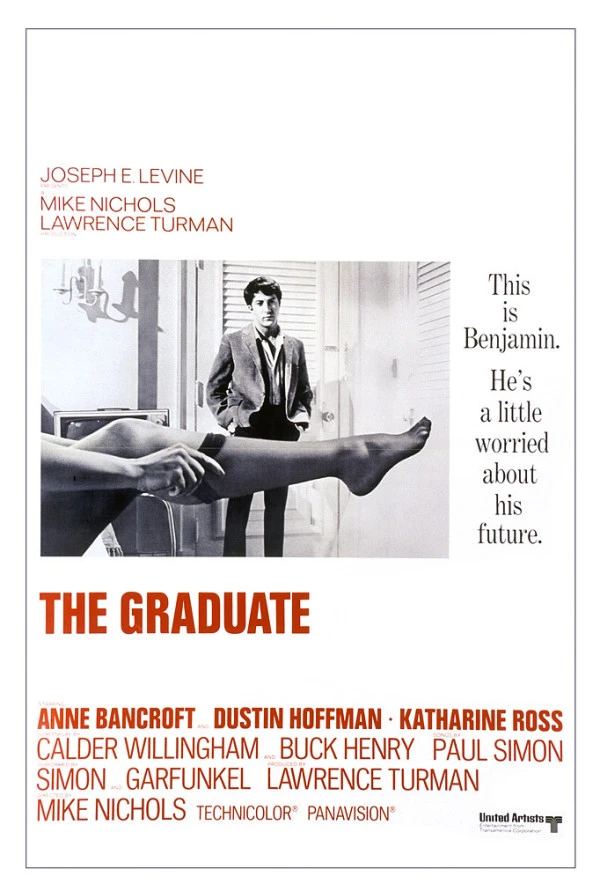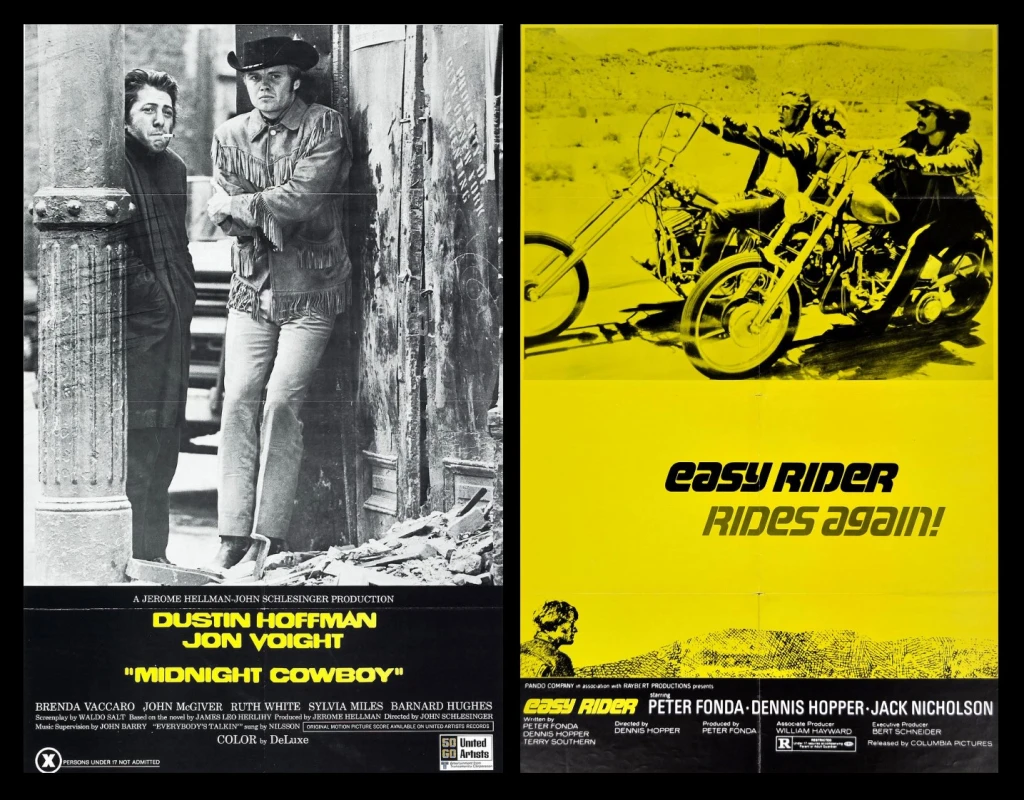by James Wallace Harris, 10/4/23
I’m always shocked by how much American society has changed since the 1960s when watching movies and television shows from that decade. I graduated high school in 1969.
I’m curious how people born after the 1960s picture it in their mind’s eye. I grew up in the 1960s and remember two versions of that decade. I mostly recall the pop culture 1960s that everyone learns about in history and from the media, but if I think about it, I remember another 1960s, one far more mundane, and quieter. The difference you might say between The Beach Boys in 1963, and The Beatles in 1969.
Over the last two nights, Susan and I watched two movies from the 1960s that reminded me of the less famous version of that decade: Boy, Did I Get a Wrong Number (1966) and Doctor, You’ve Got to Be Kidding (1967). Neither film was particularly good, but I found them both to be fascinating time capsules of that other 1960s.
Someone growing up in the 21st century would probably find both films stupid and even offensive. They would probably wonder where the smartphones, tablets, computers, and social media were, and why no one used certain now universal four-letter words routinely as adjectives, adverbs, and nouns. I’m sure they would think the acting stilted and why people fit into roles, especially gender roles. Those thinking a little deeper would wonder why all the famous 1960s pop culture was missing. But I think the thing that would standout the most, was the attitude both movies presented regarding sex. You’d think people living in the 1960s were Victorians.
Both Boy, Did I Get a Wrong Number and Doctor, You’ve Got to Be Kidding were about sex, but neither showed actual nudity or anyone having sex. Doctor is about Sandra Dee getting pregnant and three boyfriends wanting to marry her. None of the three had had sex with her. And the only reason we know Sandra Dee had sex with her boss, George Hamilton, was because the movie showed fireworks.
Boy is about Bob Hope, a late middle-aged real estate agent getting accidently involved with sexy movie star Elke Sommer, but not really. Elke Sommer plays a French actress famous for making movies where she takes bubble baths. She really wants to do dramatic roles and free herself from tub casting. Ironically, we see her taking several foamed covered baths in this film. 1966 is before they started having nudity in films, but it tries hard to show as much of Elke Sommer as possible. Boy, Did I Get a Wrong Number advocates good old fashion puritanical values while promoting itself with the allusion of sex.
I thought both films were accurate with the clothes, houses, furniture, and cars. The look of the other sixties does come across in these films. Even the lame jokes and goofy dialog gave off the right vibes for the times.
Both films were aimed at the silent majority but tried to appeal to the emerging youth culture. It’s strange how we see counterculture slowly take over Hollywood by watching old movies and television shows from the late 1960s and 1970s. Very few movies in the middle 1960s showed what was happening in the rock world, or counterculture. If they had rock music, it was generic instrumental shit. Hollywood lagged for several years recognizing the social impact of rock.
I remember seeing The Graduate in late 1967 and thinking how radical it was. The soundtrack used Simon and Garfunkel. That was tremendously exciting at the time because it felt like my generation was finally being recognized. However, seeing it recently was another shock. It wasn’t that radical at all, not how I remembered feeling it in December 1967. The Graduate was still much closer to that quiet version of the sixties than the infamous loud sixties. I see it now as a transitional film.
It wasn’t until 1969, with Midnight Cowboy and Easy Rider, that we began to see that notorious version of the 1960s. I remember how shocking both films were when I saw them at the theater. But by then, my personal sixties were closer to those films. But in 1966 and 1967, my life was still like the Bob Hope and Sandra Dee flicks.
Another way to look at it was Hollywood was censored for showing real life for many decades, and finally in the late 1960s changes in the laws allowed it to portray a more real America.
I’m not sure any film captures the times in which they were made. They all create a mythic view. But I need to think about that. Are there any films from the 1960s that come close to how I lived in that decade? Do you have a film, from any decade, that you feel represents something close to how you grew up? I was too young, but I do remember people like the characters in America Graffiti. Actually, I remember people like the Bob Hope and Sandra Dee characters too. Maybe it’s the characters and settings that feel more historical than plots.
JWH




I agree, I can’t think of any movies that represented my life back in the sixties but I was pretty young then. I would have made for a boring watch. But maybe people weren’t ready for reality. I recall outrage by different groups when something was just a little more daring. as in The Graduate.
The Graduate got a lot of press for being daring. It felt daring. It felt like it spoke directly to my generation. But seeing it now, I wonder if it wasn’t satirizing our generation. Here’s my review of the film after I watched it again in 2021.
Good review. My comments are on the post.
Many thanks for this discussion, as always, Jim! I grew up in the seventies (born in 1964), but I find the sixties fascinating. I wonder if perhaps there were many people living through that decade (in the U.S. and Canada, where I live) for whom “the sixties” as we think of it didn’t happen–for whom all the tumult (anti-Vietnam war protests, counterculture, acid rock, etc.) was a faint, distant echo.
FYI, my mother took my twin sister and me to see American Graffiti when it came out (1973 or so–we would have been nine), and was so shocked by it that she dragged my sister and me out of the film less than halfway through, and complained to the theatre staff. I guess she found it licentious, dissolute, etc., what with one character mooning someone through a car window, etc.–about the only scene I remember. Maybe I’ll look for the movie in the library sometime so I can see it again properly.
It’s a great film that I’ve seen many times. I can’t think of why your mom got upset. The kids were slightly rebellious in the first part. They got more so as the picture progressed.
Another realistic picture from the early 1970s about teenage life in America was THE LAST PICTURE SHOW. It was set around the time I was born, 1951. I bet your mom wouldn’t have stayed through it either.
I can understand why American Graffiti was a bit much for my mum (and would have been for my dad too, had he seen it). They were both rather high-minded, and in some ways culturally (not politically) conservative. I saw and liked The Last Picture Show. I’ve forgotten the details of the plot, but still recall the overall impression it made. Maybe I’ll see if I can find the book.
The first movie that rocked my world was GOLDFINGER in 1964. Loved James Bond, loved the quirky villain, loved the music! I was only 15 years old, but I remember that incident like it was yesterday!
I was crazy about spy music soundtracks. GOLDFINGER was much discussed on my junior high playground. Besides the music and sexiness of the movie, it began in Miami Beach, and I grew up in Miami.
actually, i think you may have missed the boat in yr comparison of the beach boys and the freaking beatles,harris! the beatles wre still pretty much a working jukebox of covers in 1963; the beach boys (brian wilson,anyway) were likely the most imaginative force in music next to phil spector. the beatles had pretty much shot their wad by 1969; all of you out there in cyberspace who doubt me would do well to listen to the beach boys last release on capitol titled 20/20 (not easy to find, but worth seeking out), and come back and tell me that abbey road wasnt some of the lamest music released that year, on a level with the spiral starecase or bobby sherman, and inferior to what the partridge family was cranking out. john lennon might have been a genius, but he was never the wordsmith van dyke parks was and remains, even in retirement. i have spoken!
I wasn’t thinking about their music but their looks. The 1963 Beach Boys with their short hair and Madras shirts is how guys looked for most of the 1960s but I imagine young people today think guys in the sixties looked like The Beatles in 1969.
Insightful and interesting, Jim!
hi,fans! come to think of it, i recollect the mainstream press making a big deal out of john lennon cutting his hair for his role as tommy gripweed, circa 1966, in HOW I WON THE WAR; seems like he cropped it again about 1969, making a statement about something or other.” ye think it’s easy being the greatest artist of all time. if i could have been a fisherman, i would have been, but i’m a fooking genius.” sorry to see you go the way you did, john, but i don’t think you finished up more popular than jesus. DOUBLE FANTASY very nearly cancels out ROCK AND ROLL, but i’ll remember you for ACROSS THE UNIVERSE, TOMORROW NEVER KNOWS, and NORWEGIAN WOOD.and as for the rest of you out there in cyberspace, i’d be interested to know how you picture myself and my contemporaries from the class of 1969. i expect the portrait wouldn’t be especially flattering, given the state things have gotten into…
I remember looking at the Killian yearbook online a few months ago and I was surprised by how few guys had long hair. Ed, you did look like a Beach Boy because you had blondish hair. My picture wasn’t there. I wasn’t cooperating in the 12th grade. I remember one time walking the outer hall of Killian and some teacher/administrator/principal came over to me and got right in my face and started screaming at me about my hair. But for the most part, Killian was exceptionally clean cut.
I’ve been reading about the Beatles lately, and I was surprised by how often they changed their looks. But I was also surprised by how short their hair was in 1963 and 1964 when everyone complained about their long hair. In 1963 they looked just as clean cut as the Beach Boys.
interesting. i had what would probably be known as a buzz cut up until autumn of 1967; i remember trying to rap with a lady a bit older than i was on a satyrday afternoon in the park in coconut grove. her response was ‘has anybody ever told you how much you resemble richard speck?’ i reckoned i’d better let my hair grow; it caused some heavy friction with my father over the next twenty-four to thirty-six months before he gave up on me. as for THE GRADUATE, i didn’t actually catch it until sometime in 1979 in a screening at the university of chicago. my impression of dustin hoffman was that he looked way too old to pass for a dude in his early twenties, and that ann bancroft was hotter than katherine ross. the sixties, as a lifestyle and a state of mind have seldom been captured very well on film. documentaries like WOODSTOCK and GIMME SHELTER capture some of it. a couple of fairly obscure feature flicks from the early 1970s DEALING ,directed by paul williams (am i the only one who fell in love with barbara hershey from afar;somehow i doubt it), as well as THE TRAVELING EXECUTIONER directed by jack smight (imagine what robert altman might have made of it) get some of the zeitgeist. in 1968/1969 i found more to identify with in THE WILD BUNCH and ONCE UPON A TIME IN THE WEST, as opposed to EASY RIDER or ALICES RESTAURANT, which were supposedly about our generation. no doubt there are plenty of people out there
who will take exception to that; as timothy leary said, you can be anyone this time around. don’t be afraid to use your own heads, kiddoes!
drifting still further, the only bob hope vehicles i can recall seeing during the 1960s were ROAD TO HONG KONG and EIGHT ON THE LAM. both were passable entertainment, but there wasn’t a hell of a lot to either of them. it’s interesting to speculate on what a director like woody allen could have made of hopes lecherous persona;imagine hope cast opposite mariel heningway or brooke shields in a flick titled ROAD TO SAN QUENTIN. my only memory of elke sommer is as a judge on THE GONG SHOW. somehow, she didn’t captivate me nearly as much as jaye p. morgan. go figure…
I loved THE GONG SHOW back when it came out. I used to watch it with friends while getting high. I have a feeling it would be too stupid today.
My absolute favorite Bob Hope film is BACHELOR IN PARADISE (Jack Arnold, 1961). It visually captures growing up in the suburbs in the early 1960s perfectly. I especially love the scene in the grocery store. I’ve seen this film many times. I consider my childhood era to be 1955-1962, and this movie visually reminds me of those times.
My second favorite Hope film is GHOST BREAKERS (George Marshall, 1940) with Paulette Goddard. Now, she was hot.
Since I’ve had a couple of days to think about it, the film that reminds me of the 1960s is FOUR FRIENDS (Arthur Penn, 1981).
https://en.wikipedia.org/wiki/Four_Friends_(1981_film)
A 480p copy can be found at YouTube: https://www.youtube.com/watch?v=RXENmAQXeR0
Dustin Hoffman was much too old looking, and Ann Bancroft was hotter than Katherine Ross. I’m surprised you didn’t see it in 1967 since you’re so in tune with pop culture.
You identified with THE WILD BUNCH and ONCE UPON A TIME IN THE WEST? Ed, you must have had some anger issues as a kid. Those were exciting movies, especially the Henry Fonda flick, but I wouldn’t say I identified with them.
Didn’t everyone lust after Barbara Hershey? She often showed it all in films.
One of the best films that remembers the sixties is RETURN OF THE SECAUCUS 7 (John Sayles 1981).
https://en.wikipedia.org/wiki/Return_of_the_Secaucus_7
i can remember an acquaintance mentioning FOUR FRIENDS sometime in the early 1980s;hopefully it turns up in one of the remaining revival houses around here, or the pacific film archive (PFA) in berkeley. i particularly identified with edmond o’brians character in THE WILD BUNCH (‘who the hell is they?”),as well as robert ryan as deke thornton. (‘hang around out here, try and stay out of jail.’ as viable a lifestyle as any i ever encountered in a film); the two who survived, and i’ve always wondered how long they lasted. getting back to arthur penn, next to BONNIE AND CLYDE, his most interesting film is THE MISSOURI BREAKS. definitely the best screenplay he ever worked from. i saw THE RETURN OF THE SECAUCUS SEVEN at the public library in oak park forty years back, more or less, circa 1983/1984. (‘sunday!sunday!sunday!) anybody else out there see THE TRAVELING EXECUTIONER? (although it was set in the south 1917/1918, the characters seemed like they were very much part of the late 1960s,early 1970s, to me,at least.